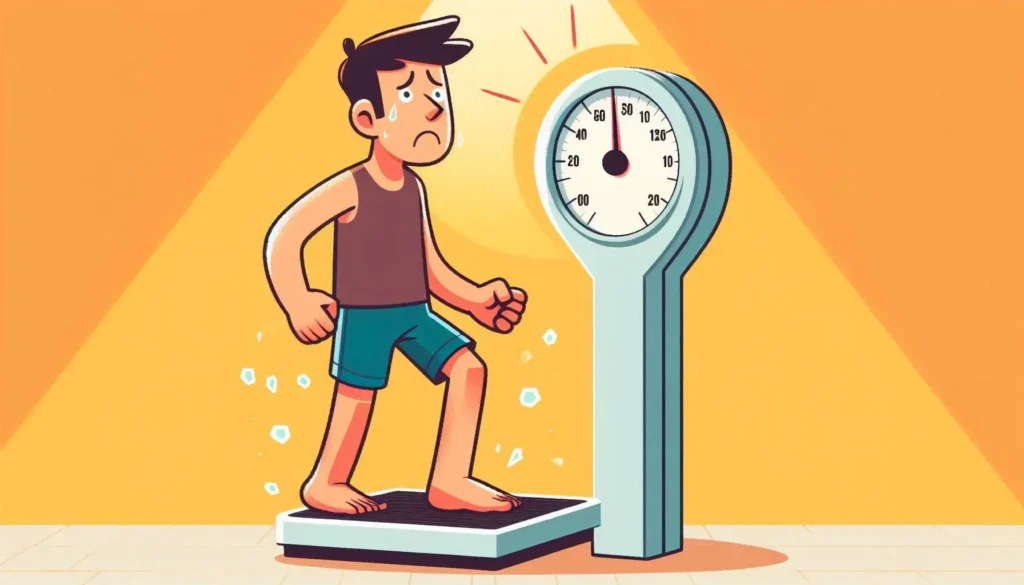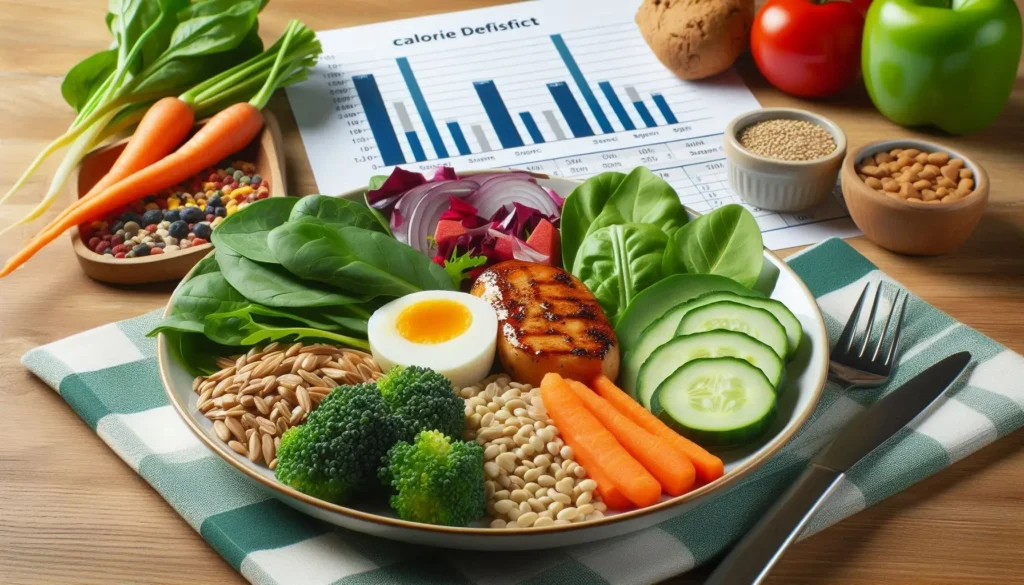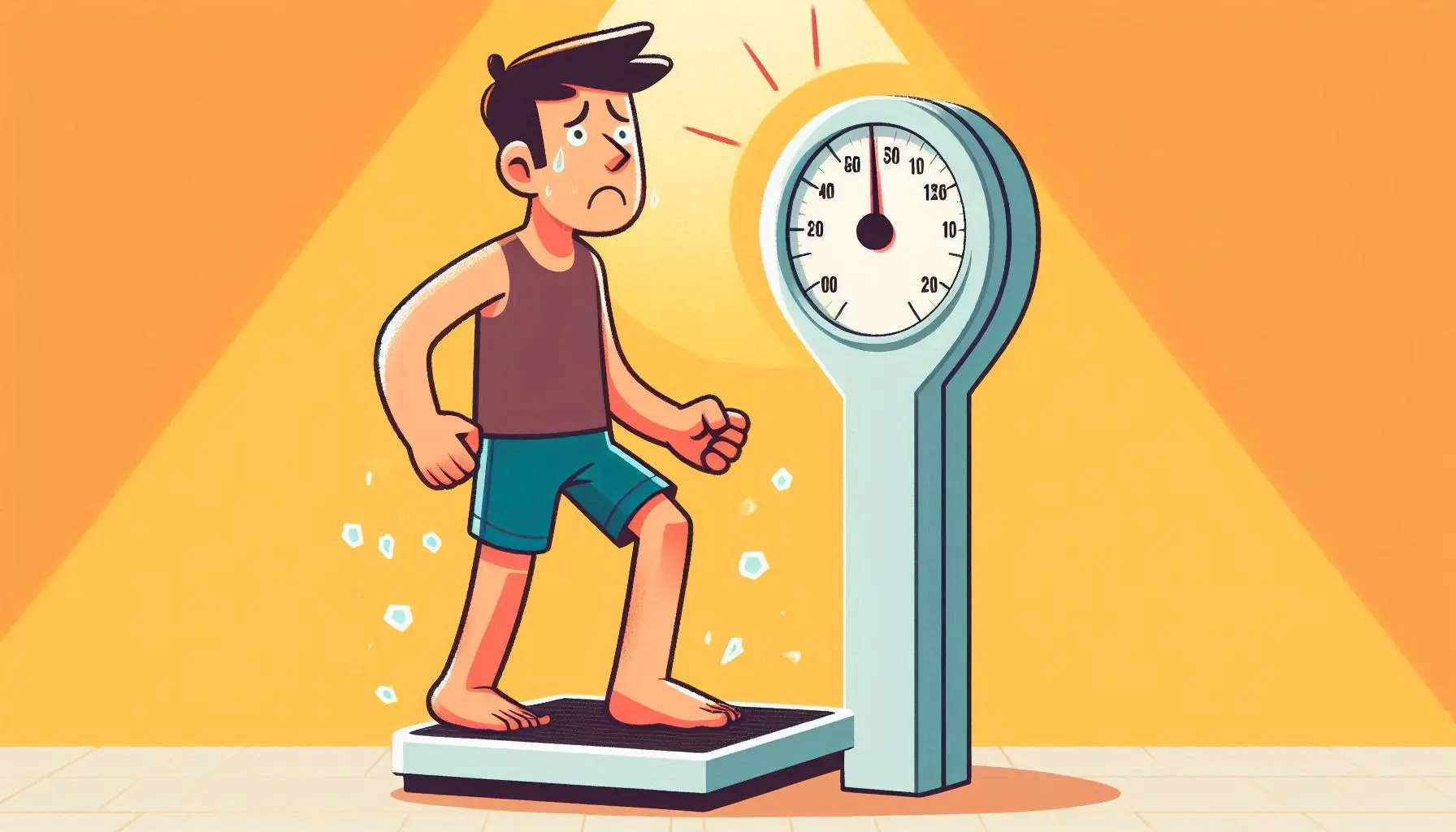Weight loss can feel like a daunting journey, but with the right mindset, approach, and information, it’s definitely achievable! Whether you’re aiming to lose a few pounds or are looking for a bigger transformation, the key is to keep it simple, stay consistent, and most importantly, be kind to yourself.
In this guide, we’ll explore some science-backed strategies that can help you lose weight, maintain it, and enjoy a healthier lifestyle. We’ll break everything down into bite-sized chunks so it’s easy to follow.
1. Understanding Weight Loss Basics
What is Weight Loss?
At its core, weight loss happens when you consume fewer calories than your body burns. This difference in energy input and output is called a calorie deficit. When your body is in a calorie deficit, it taps into stored fat for energy, leading to fat loss.
However, weight loss isn’t just about cutting calories. It’s about making sustainable changes to your diet and lifestyle that you can stick to in the long run. Crash diets or extreme exercise regimens often result in temporary weight loss, but the weight tends to creep back once you stop.

What Determines How Many Calories You Burn?
Everyone’s body is different. The number of calories you burn each day is influenced by factors such as:
- Basal Metabolic Rate (BMR): This is the amount of energy your body uses to maintain basic functions (like breathing and digestion) while at rest.
- Physical Activity: The more you move, the more calories you burn.
- Thermic Effect of Food (TEF): Your body burns calories digesting food, but different foods have varying effects. Protein, for example, burns more calories during digestion than carbs or fats.
- Non-Exercise Activity Thermogenesis (NEAT): These are calories burned during daily activities like walking, fidgeting, or even cleaning the house.
2. Building a Healthy Relationship with Food
It’s All About Balance
Losing weight isn’t about deprivation. It’s about finding balance in your meals. That means eating a variety of foods that fuel your body and keep you feeling full and satisfied.
Instead of focusing on what you can’t eat, think about what you can enjoy:
- Whole grains like oats, quinoa, and brown rice
- Lean proteins like chicken, turkey, tofu, and fish
- Lots of fruits and veggies for fiber and nutrients
- Healthy fats from sources like avocados, nuts, and olive oil
What About Treats?
Let’s get real—completely cutting out your favorite treats can feel like torture! But good news: you don’t have to! Enjoying occasional treats can actually make it easier to stick to a healthy eating plan in the long run. The trick is to enjoy them in moderation and savor every bite.
Pro Tip: If you’re craving chocolate, for example, go for a small square of dark chocolate. It’s rich in flavor, so you don’t need much to satisfy that sweet tooth.
3. Smart Workout Strategies
Exercise is a crucial part of weight loss, but you don’t have to be a gym rat to get results. The best workouts are the ones you enjoy and can stick with. Here are some simple strategies to incorporate more movement into your day:
1. Start Small and Build Up
Don’t go from zero to running marathons. Start with activities you enjoy, like walking, swimming, or biking. Over time, you can gradually increase the intensity and duration.
2. Strength Training for the Win
Building muscle is key to speeding up your metabolism. The more muscle you have, the more calories your body burns at rest. So don’t be afraid to pick up some weights, even if they’re light to start.
3. Make It Fun!
Find workouts that feel more like fun than exercise. Dancing, hiking, yoga, or even chasing after your kids in the park all count!

4. The Power of Sleep and Stress Management
Sleep: The Secret Weapon for Weight Loss
You’ve probably heard the phrase “sleep is for the weak.” Well, it turns out that sleep is actually for the strong—especially if you’re trying to lose weight!
When you’re sleep-deprived, your body craves high-calorie, sugary foods to give you energy. You’re also more likely to skip workouts. Aim for at least 7-9 hours of quality sleep each night to keep your metabolism in check and cravings at bay.

Stress: The Silent Saboteur
Stress can wreak havoc on your weight loss efforts. When you’re stressed, your body produces a hormone called cortisol, which can increase your appetite, especially for comfort foods.
To manage stress, try techniques like:
- Meditation or deep breathing
- Journaling or talking to a friend
- Yoga or light stretching
5. Tracking Your Progress
Tracking your progress is a great way to stay motivated and see how far you’ve come. But it’s important to track more than just the number on the scale. Other ways to measure progress include:
- Measurements: Take measurements of your waist, hips, arms, and legs. Sometimes you’ll lose inches even if the scale isn’t moving.
- Photos: Take progress photos every month to visually see changes.
- How You Feel: Do you have more energy? Are your clothes fitting better? Are you sleeping better?
Remember: Weight loss isn’t linear. Some weeks you’ll lose more, some weeks less. The key is consistency over time.
The Importance of a Healthy Diet and Physical Exercise in Weight Loss
When it comes to weight loss, diet and exercise are the two key components that work hand-in-hand to achieve sustainable results. Many people focus on one over the other, but the truth is that both play a vital role in improving overall health, shedding pounds, and keeping them off for good.
Let’s dive into why both a healthy diet and physical exercise are so important.
Why a Healthy Diet is Crucial for Weight Loss
1. Calorie Control
One of the most fundamental principles of weight loss is being in a calorie deficit—that is, consuming fewer calories than you burn. Diet plays a significant role in controlling the number of calories you take in. It’s much easier to reduce calories by tweaking your food intake than by relying solely on burning them through exercise.
For example, skipping that 500-calorie dessert is much easier than running for an hour to burn those same 500 calories.
2. Nutrient-Dense Foods
A healthy diet is more than just counting calories—it’s about getting the right nutrients. Eating nutrient-dense foods like vegetables, fruits, lean proteins, and whole grains fuels your body with essential vitamins, minerals, and fiber that keep you feeling full and satisfied, reducing the likelihood of overeating.
3. Regulating Hunger Hormones
The foods you eat have a direct impact on hormones that regulate hunger, such as ghrelin (the hunger hormone) and leptin (the satiety hormone). Eating a diet rich in fiber, protein, and healthy fats can help control hunger and keep you satisfied for longer periods, while highly processed foods often lead to overeating.
4. Long-Term Health Benefits
A healthy diet isn’t just about losing weight; it also promotes overall health by reducing the risk of chronic diseases like heart disease, diabetes, and hypertension. The nutrients you get from a balanced diet improve everything from your energy levels to your immune system, making you feel your best both inside and out.

Why Physical Exercise is Essential
1. Burning Calories
Exercise is an important tool for burning extra calories, which is necessary to create a calorie deficit. While diet controls calorie intake, exercise boosts calorie expenditure. Even moderate activities like walking, swimming, or cycling help you burn calories, which contributes to weight loss over time.
2. Building Muscle
One of the most overlooked benefits of exercise is muscle building. Strength training exercises, in particular, help build lean muscle mass. The more muscle you have, the more calories your body burns at rest, even when you’re not exercising. This helps with long-term weight loss and maintaining your results.
3. Boosting Metabolism
Exercise, especially high-intensity workouts like interval training or weightlifting, can give your metabolism a boost, meaning you’ll burn more calories throughout the day. This is particularly helpful as you lose weight because your body naturally burns fewer calories as you get lighter.
4. Improving Mood and Reducing Stress
Physical activity is not just beneficial for your waistline; it’s also great for your mental health. Exercise releases endorphins, which are chemicals in your brain that make you feel good. It can also reduce levels of cortisol, the stress hormone that can lead to weight gain, particularly around the belly.
5. Increased Energy Levels
It may seem counterintuitive, but the more you move, the more energy you have. Regular physical activity increases endurance, improves heart health, and boosts your stamina, making it easier to stay active throughout the day.

Graph:
| Component | Calories Burned (per hour) | Example Activity |
|---|---|---|
| Walking (moderate pace) | 210 | Walking the dog, casual walking |
| Biking | 500 | Leisurely biking, city riding |
| Swimming | 400 | Laps in the pool |
| Strength Training | 350 | Lifting weights, bodyweight exercises |
| Running (moderate pace) | 600 | Running in the park or on a treadmill |
Common Myths:
1. Myth: You Can Out-Exercise a Bad Diet
This is one of the biggest misconceptions. Many people think that as long as they work out regularly, they can eat whatever they want. Unfortunately, that’s not how weight loss works. While exercise burns calories, it’s incredibly hard to out-exercise a poor diet.
For instance, it takes minutes to eat a 600-calorie donut, but nearly an hour of running to burn those calories off. Focus on balancing both diet and exercise rather than relying on one to fix the other.
2. Myth: Carbs Make You Gain Weight
Carbs have gotten a bad rap in recent years, but the truth is that not all carbs are bad. Whole grains, fruits, and vegetables are sources of complex carbohydrates that are packed with nutrients and fiber, helping you feel full and satisfied.
The real culprit is refined carbs—like sugary snacks, white bread, and pastries—that lack fiber and spike your blood sugar, leading to overeating. Including complex carbs in moderation as part of a balanced diet will not make you gain weight.
3. Myth: Eating Fat Makes You Fat
This myth stems from the 1980s when low-fat diets were all the rage. However, the truth is that healthy fats—like those found in avocados, nuts, seeds, and olive oil—are actually beneficial for weight loss. Fats help you feel full and satisfied, reducing the likelihood of overeating.
It’s important to focus on healthy fats and avoid trans fats found in processed and fried foods. So, don’t fear fat—just make sure it’s the right kind!
4. Myth: You Have to Starve to Lose Weight
Many people believe that to lose weight, you need to drastically cut calories or skip meals. This couldn’t be further from the truth. Starving yourself only slows down your metabolism, making it harder to lose weight in the long run. Plus, extreme calorie restriction can lead to nutrient deficiencies and leave you feeling fatigued, irritable, and more likely to binge.
Instead, focus on eating balanced, portion-controlled meals throughout the day to keep your metabolism running efficiently.
5. Myth: Weight Loss is All About Willpower
Willpower plays a role, but weight loss is about creating a sustainable environment where you can make healthy choices more easily. Instead of relying solely on willpower, plan meals, remove temptations, and focus on building habits that set you up for success.
Remember: Weight loss is about progress, not perfection. It’s okay to have treats and indulgences along the way—what matters is consistency over time.
FAQs About Diet and Exercise
Q: Can I lose weight just by dieting and not exercising? A: Yes, you can lose weight by being in a calorie deficit through diet alone, but exercise enhances weight loss, improves health, and helps maintain muscle mass.
Q: How much exercise should I do to lose weight? A: Aim for at least 150 minutes of moderate aerobic activity (like walking) per week, combined with strength training exercises twice a week to build muscle.
Q: Is intermittent fasting a good weight loss strategy? A: Intermittent fasting can work for some people, but it’s not necessary for everyone. The key is finding a way of eating that is sustainable for your lifestyle.
Q: Should I eat before or after exercise for weight loss? A: It depends on the individual, but generally, having a small snack with protein and carbs before exercise can provide energy, and eating after helps with muscle recovery.
Q: Is cardio better than strength training for weight loss? A: Both cardio and strength training are important for weight loss. Cardio burns more calories during the workout, while strength training builds muscle that helps you burn more calories even at rest.
Conclusion
Weight loss doesn’t have to be complicated or overwhelming. The secret lies in making small, sustainable changes to your diet and lifestyle, staying active, and being kind to yourself along the way. Remember that everyone’s journey is different—what matters most is finding what works for you.
Good luck, and enjoy the process! You’ve got this!
Read More About Ozempic Weight loss.
For Any Questions Comment Or Contact Us.
